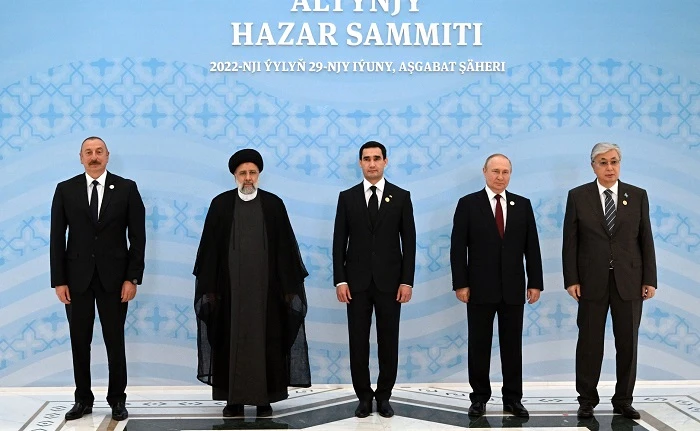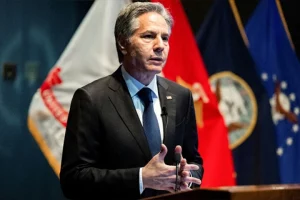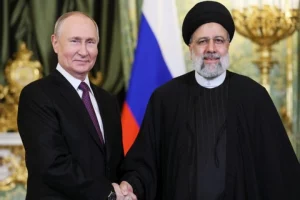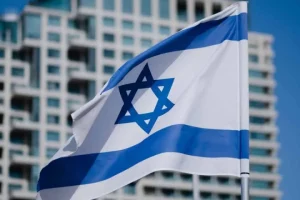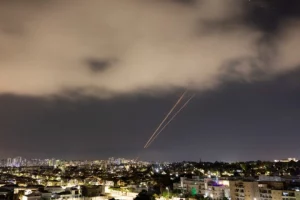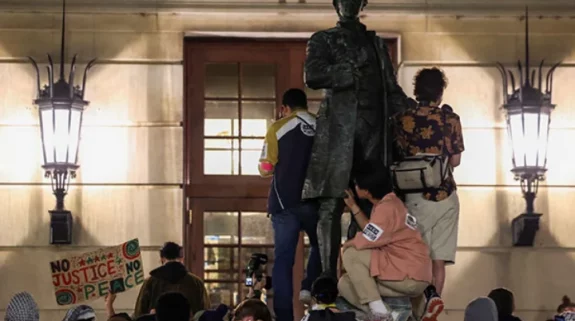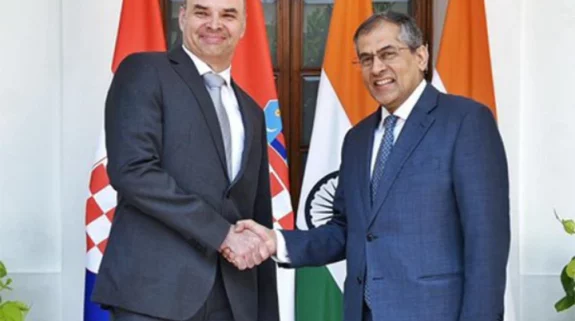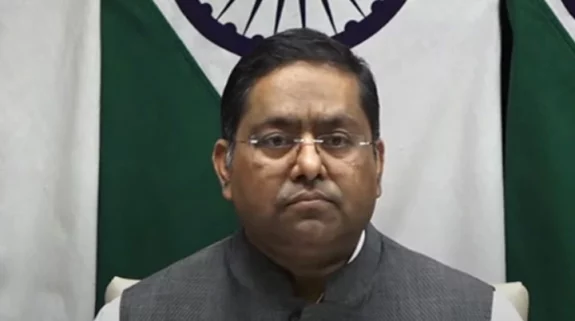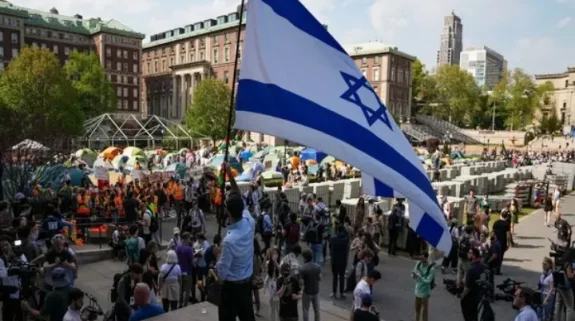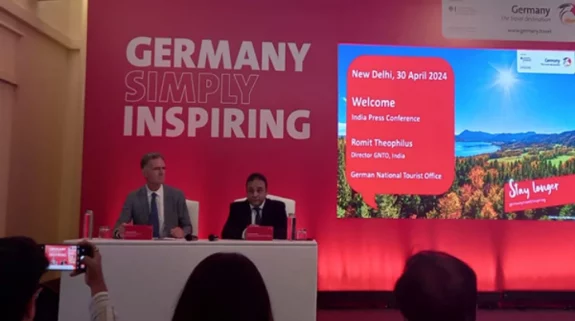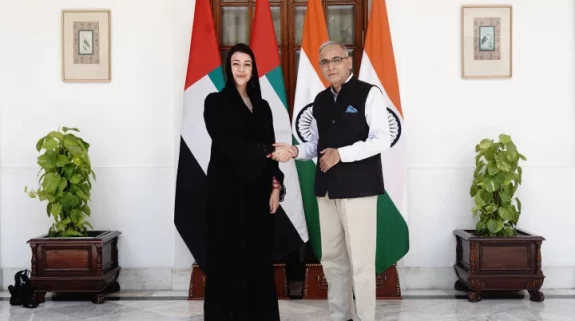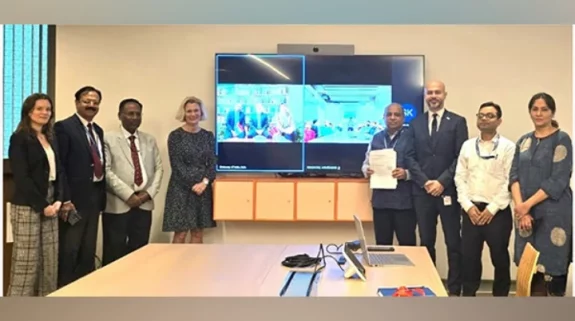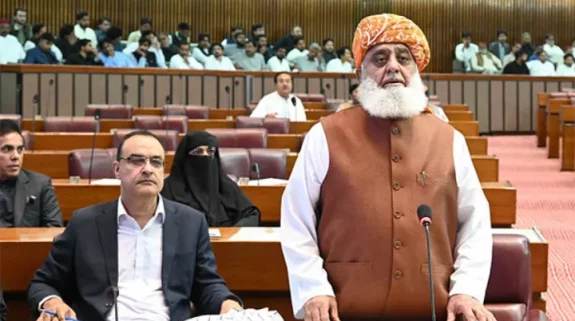Russian President Vladimir Putin has again batted for the "speedy launch" of the International North South Transport Corridor (INSTC) to improve the transport and logistics architecture of the Eurasian region.
At this week's Caspian Summit in Ashgabat, Putin spoke in detail about the 7,200 km-long, multimodal trade corridor which will start from Mumbai, with nodes in West Asia, Central Asia, Caucasia and Russia covering large swathes of territory in landlocked Eurasia.
"The speedy launch of this corridor is intended to be facilitated by the agreement between the Caspian states on cooperation in the field of transport, which came into force last year, which is aimed at turning the Caspian Sea region into a major international logistics hub," Putin told the gathering which comprised of Presidents of Azerbaijan (Ilham Aliyev), Iran (Ebrahim Raisi), Kazakhstan (Kassym-Jomart Tokayev) and Turkmenistan (Serdar Berdimuhamedov).

The Russian President highlighted active developments in Kazakhstan and Azerbaijan to advance the transport artery, emphasising that Moscow too continues to make "energetic efforts" in the direction.
"I would like to inform you that Russia has adopted and is implementing the Strategy for the Development of National Seaports in the Caspian Basin, as well as rail and road approaches to them until 2030. We are expanding the relevant infrastructure in the Caspian. We pay special attention to the ports of Astrakhan, Olya and Makhachkala," he added.
The Caspian Five acknowledged the huge significance of the large-scale project which would eventually link the far-west Russian city of Saint Petersburg to the ports of Iran and India.
Azerbaijan, which will be hosting the 8th meeting of the NSITC Coordination Council later this year, listed the development of transport infrastructure, improving the quality of transport services and multimodal transport as an important area of cooperation.
"Today, Azerbaijan is one of the important transport and logistics centers of Eurasia. Our country plays an important role in the development of East-West and North-South international transport corridors. We strive for the efficient use of the Trans-Caspian international transport route," said Azerbaijan President Ilham Aliyev.
However, for the successful completion of these projects Azerbaijan would have to also depend on extensive cooperation from the rival Caucasus nation of Armenia which is a key member of the initiative to establish the vast pan-Eurasian transport network.
During the first-ever visit to Yerevan by an External Affairs Minister of India since the independence of Armenia, S Jaishankar and his counterpart Ararat Mirzoyan had held extensive discussions on the utilization of Chabahar port in Iran which India is pushing to include in the INSTC framework.
As reported by IndiaNarrative.com, the landlocked country's economic ambitions are expected to get a fresh lease of life through the unique project.
Also Read: After Jaishankar's visit, Armenia becomes part of a greater Asian trade route

Iran, which continues to label the North-South corridor as a great option to replace the Suez Canal as it results in massive reduction in travel time and eventually savings, also focused big time on transport and transit issues in Ashgabat.
"Considering its geographical location and suitable infrastructure, the Islamic Republic of Iran is ready to provide the transit and access of the coastal countries of the Caspian Sea to other countries and regions, especially the ports of Iran in the Persian Gulf and the Sea of Oman through its territory," Iranian President Ebrahim Raisi had said on Wednesday afternoon.
Tehran has already begun testing the INSTC connectivity routes with the successfull completion of the first transit of goods from Astrakhan to Mumbai last month.
"Goods originated in St.Petersburg, departed the Russian Caspian Sea port zone of Solyanka, in Astrakhan, were shipped south to Iran’s Anzali Caspian seaport, and then transited south via road across Iran to the Iranian Gulf port of Bandar Abbas. From there, goods were shipped to Mumbai on India’s West coast. The entire journey took 24 days and is likely to become quicker once the trans-Iranian railway is completed next year," reported Russia Briefing, a pan-Asian foreign investment advisory practice assisting international businesses with planning their market entry into Asia.
Also Read: India proposes a giant transport corridor in Central Asia that excludes China and Pakistan






